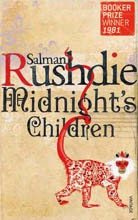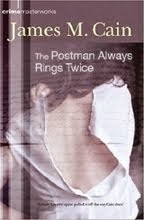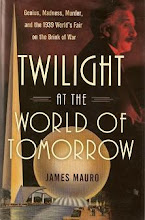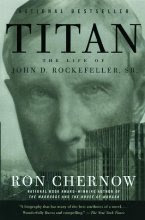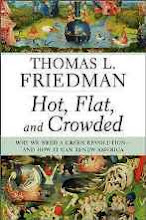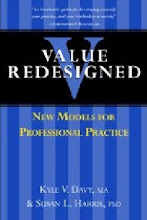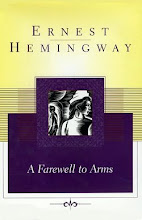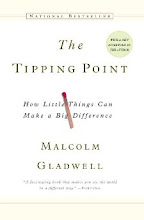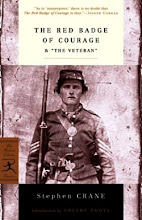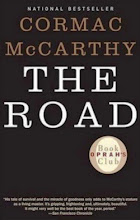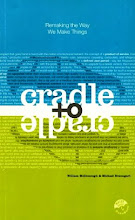20061231
20061226
To Slay Boreas
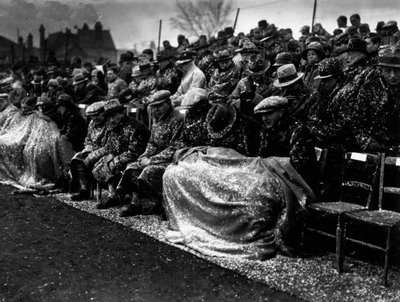
The time is growing short as I prepare for an epic battle with the Devouring One. My mind is stilled as the New Year approaches setting in motion a legendary struggle between mortal man and the god of the cold north wind, Boreas. Providence as has aligned the stars so that I will battle the white abyss as the first sun of the New Year sets over my small hamlet. So it has been written.
For those that do not know, Boreas was the Greek god of the cold north wind and the bringer of winter. His name meant "North Wind" or "Devouring One". Greek legend described Boreas as very strong, with a violent temper to match. He was frequently depicted as a winged old man with shaggy hair and beard, holding a conch shell and wearing a billowing cloak. During my journey I am sure to stare into his cold fierce eyes challenging his rule. Do not underestimate his power and cruelty as he recently stole Christmas from a quarter million travelers in Denver last week alone. He has been conserving his energy for the time when he is the strongest at which time he will seek vengeance and retribution from anyone that stands in his way. The lands on which we will battle are already known and the mild calm is only a retreat from the fury to come.
In a hundred years my travels will never be aligned such as they are for January. Fate has written this clash in the calendar without reprieve or repentance. I shall only be home about six days in January. As if I was attempting to provoke Boreas by spitting in his face, I will visit the cities of Toronto, Minneapolis, Chicago, Rapid City, Cheyenne and Denver to face the brunt of the cold while Philadelphia and Baltimore wait with ice and sleet. The only shelter I will find is three days in San Antonio to recover my strength and will. No one can expect to walk the razor’s edge for so long without bleeding. I’m sure it will provide the next generation hours of entertainment as the tales of courage are told before a warm fireplace.
Most people consider my actions as a road warrior who has gone insane. Why tempt fate and hurl myself into the lair of the winter gods. Everyone knows that I no longer ski or enjoy winter sports. The sad truth is that this fools schedule is another fleeting attempt to gain fame and fortune. However if I should survive, I will be granted my reward in February when I travel to Australia for three weeks during the waning of the summer season. What can I say “Only fools rush in where wise men fear to tread.” I’ll see you on the white side.
In the dread circle hemmed by glaciers,
Pallid waste where no radiant fathomers,
Columbuses or Gamas, ever pass,
In realms of dingy gloom and deep crevasse
Seized from creation by nonentity,
Beyond ice floe and berg and ice-bound sea,
Deep in the fog that quenches every ray,
In stone waves and rock waters, far from day,
Amid the gloom, there, on the pole, stands black
Archangel Winter, darkness on his back
And trumpet at his lips; nor does he cast
One flash of eye, or blow one clarion-blast;
He never even dreams, being sheer snow;
The winged winds, captives of that age-old foe
Silence, are in his hand—birds in a snare;
His sightless eyes horribly watch the air;
Hoarfrost is in his bones and on his head,
And he is swathed in ever-petrified dread;
He terrifies the Vast, he seems so wild;
He is harsh, dismal, ice—that is, exiled;
The earth beneath his feet, in its dark cape,
Is dumb; he is the mute white stony shape
Set on that tomb in the eternal night;
Never does any motion, sound, or light
Brush the lone giant in that somber pall.
But when, on the timepieces that we call
Stars, the last day, endless and centerless,
Will sound, then the Lord's face will luminesce
And melt the spirit; his mouth will distend
Suddenly, in a savage, dreadful bend,
And the worlds—skiffs rudderless, rolling on—
Will hear the storm-blast of his clarion.
Archangel Winter
by Victor Hugo
Labels:
Archangel,
Boreas,
Cheyenne,
Chicago,
Denver,
Fate,
Minneapolis,
North Wind,
Rapid City,
Toronto,
Victor Hugo,
Winter
20061224
To My Youth
"Hold on to what is good even if it is a handful of earth.
Hold on to what you believe even if it is a tree which stands by itself.
Hold on to what you must do even if it is a long way from here.
Hold on to life even when it is easier letting go.
Hold on to my hand even when I have gone away from you."
Pueblo Blessing
20061222
Wisp of Smoke

The fragile nature of our existence is ever more present in my thoughts. Having first hand witnessed the impact of a brain trauma, my understanding of the world has been deeply altered. Our collective life experience is nothing more than a wisp of smoke from a cigarette hanging in the still air; it only exists and is recognizable if undisturbed. Even the smallest of gestures can scatter and dissipate life’s delicate balance. A slight draft will mix and blend the smoke distorting all previous arrangements. The collective total of our memory can be lost or altered in a blink of an eye, like the breeze that consumes the fragile smoke. This appreciation of the fragility of self awareness leads me to focus on the moment, since it all we really know as truth.
I’ve watch how the mind struggles to reconnect to old pathways of memory. In my wife’s case it was as if her mind had quite literally experienced an earthquake leaving some items undisturbed, while others were either slightly displaced or completely destroyed. There was little pattern to what remained and what didn’t. She was extremely fortunate to only experience relatively slight trauma compared to most, but the impact in many respects was devastating. Isolated areas of memory and brain function were altered, like a file cabinet that had a few files fall from the drawer scattering the contents. In her case the entire dictionary of words starting with the letter S was reorganized. Instead of soup it was now stew and spaghetti was now spareribs. Tentative mental relationships tangled in a hopeless knot.
Another area of impact was names of relatives and associates. Names were randomly associated with new individuals like picking names from a hat. Surprisingly the new connection was not superficial, but deeply rooted. For a few weeks Marcy was Patti and Linda was Marcy. On the other hand, her livelihood is finance and there was no altering of mental acuity for mathematics, as she quoted from memory interest rates and amortization schedules to the attending physicians. I have yet to look deeper into brain function to determine if there is a correlation with these cognitive skills and the area of damage. I suppose that this particular area of the brain represents a crossroad for associative memory.
The dark side of the experience was truly frightening as I peered into a window of losing one’s mind. Watching her lost unable to find the past was profoundly painful. The loss of self identity and personal perspective created a chasm that I could not bridge regardless of how hard I tried, like watching someone lost through a crystal ball, your calls and pleas go unheard. My explanations and reassurances never provided solace as she struggled with the vastness of darkness of what was now her life. I constructed simple models to illustrate the complex processes that were in motion. Consider that you have worked in an office for the past forty years and all the manuals and references you require are within your fingertips. Each time you require an answer you instinctually reached up and open the right book where the information was located. Today you arrive at work only to find your office of forty years has been moved to a new location. As you sit in your new office you are now surrounded by cartons full of books and manuals, but you do not know which box to look in to immediately find an answer. The prospect of taking all the years of knowledge and organizing them back on the shelves can be intimidating and demoralizing.
The single greatest fear is that many cartons of books were lost never to be returned. How do you get someone to accept that not being who they were or that they will forever be a degraded version of themselves is still a blessing? How can you not grieve the loss and fear the future? The first couple of weeks were easier because so much of the brain was still sleeping. Slowly as the higher intellect of self awareness awoke distinct comparisons of who she was and who she is were now possible facilitating a mental struggle about who she will be.
One aspect of recovery that took a while to understand was absolute denial of the severity of the event. She refused to accept that anything extraordinary occurred, always more intently focused on repairing the damage and fixing the gaps. She would continuously question why people would consider her lucky or blessed, because she did not feel lucky. It took me a long time to understand why this was not a miracle in her mind. Ultimately the event needed to be viewed from within her experience. One normal Friday she had what they call a “thunderclap” headache and in the course of a few hours was rushed into surgery. A few weeks later her mind awoke with little memory of the preceding weeks, but physically she was normal without any pain or after effects. She did not experience the near death emotional trauma that all around her experienced. It was our near death ordeal not hers, deeply traumatizing everyone but herself.
Not only did she deny the miracle, but she refused to associate herself with any information about the procedure, recovery or probable long term disabilities. A number of good website clearly explained how to cope with the memory loss and therapies for a strengthening mental acuity, but she was offended that I had implored to read about her condition. Finally I had to accept the fact that it was not a life altering event for her, which lead me to wonder if this experience was intended to change the lives of those who surround her, because it most certainly did?
In my case, a new understanding of the fragility of existence is not confined by the line between life and death, but rather with an ability to maintain self awareness as grounded in your life experiences. Once we lose memory of ourselves we become divorced from reality and no longer exist as we were, only to wander lost in a new existence. In the blink of an eye everything we know of ourselves can be swept away leaving only a faint trace of the past. Conscientious is a delicate system of electrical charges and stored chemical patterns that shows an amazing ability to heal, but it pales in comparison to the frail temporal balance of existence. I now envision the mind as a wisp of smoke sheltered from the wind. Our existence depends on the smoke remaining connected and visible as it swirls. As each curl of smoke representing a memory or experience, its easy to see how memories change and reinvent the past as the smoke blends with new memories. It’s just as easy to see how memories are lost as they are replaced with new.
“Dream as if you'll live forever, live as if you'll die today.”
James Dean (1931-1955)
20061203
The Small Print
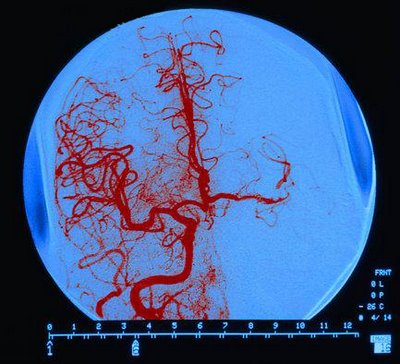
Everyone inherently knows that a brain aneurysm is deadly, but what does it really mean? With the shock of the emergency behind you, we begin to read the small print to find some truly disconcerting facts that are only disclosed on an as needed basis. It’s the medical profession’s way breaking the news to you slowly. Little by little a clear picture emerges of the devastation of this type of brain injury.
The first surprise it that the brain surgery is easy part of the procedure. Opening the skull and clipping the aneurysm is low risk compared to the recovery period. How can that be I wondered? Apparently surviving a ruptured aneurysm means that you suffered an subarachnoid hemorrhage or in layman terms blood pooled in the fluid between your skull and your brain. This is a very dangerous condition since red and white blood cells can not survive in the cranial fluid and over a period of three to four days the blood cells will die. As the blood cells die and decompose they can be viewed as small sacks of toxic poisons that are released into the cranial fluid. The most critical point of recovery is four to seven days after the surgery as the toxins from decomposing blood cells reach their maximum concentration.
As these toxins build in the cranial fluid they irritate the veins carrying blood to the brain. The natural tendency of the veins is to spasm and contract. If any vein becomes excessively irritated it will spasm and completely close resulting in a loss of blood to large portions of the brain or what is called a stroke. Where the aneurysm is located, degree of bleeding and distribution of the blood inside the skull dictate your chance of survival. During the operation the surgeon will attempt to remove as much blood any possible from the injured area. While some anchoritic hemorrhages are defused deep into the recesses of the brain tissue where vascular spasms are more probably, my wife was fortunate that most of the hemorrhage was contained in the frontal lobe.
The difficult part of the recovery is the waiting knowing that each day the risk of death is on the rise until the fifth to seventh day. Each day you sit unable to help, knowing that tomorrow might be the end. Quietly you are surrounded by elaborate machines and wires staring at the numbers displayed on a computer monitor afraid to look away. You learn to read the graphs and understand the beeps and alarms. This graph is oxygen level, that graph is heart rate, that number is blood pressure. That tone is a sensor alarm, this beep means a patch has fallen off. Each movement changes the graphs as your heart jumps into your throat wondering if the erratic graphic is just a temporary disturbance or a new serious condition.
The nurses in ICU tell us take we need to watch for changes in brain function. I ask what that means, what am I looking for? A change in brain function is a sign that the patient has had a vascular spasm or a stroke. Symptoms include slurred speech, disorientation, emotional eruptions, prolonged sleep, or weakness in extremities. Besides sitting watching the monitor you observe and scrutinize the smallest of activity. Is she blinking her eyes excessively? Should she remember what day it is? Has she been sleeping too long? Your mind is hypersensitive every moment as time creeps second by second.
Slowly the person you know so well periodically emerges from the fog, but it doesn’t come without effort and loss. At first there is no memory of our pets that she has daily cared for over the past five years. There is no memory of a private joke that been told thousands of times over the past twenty years. There are moments when she stares at you and doesn’t remember that you’re her husband. She asks her mother where her mother is. While she sleeps at night and you are alone in the ICU room you begin to ask yourself difficult questions. What if she doesn’t make it back all the way? What if she can’t work and requires home care? What if she dies? Sleep doesn’t come easy at night in ICU especially since to check brain function aneurysm patients are awoken every fifteen to sixty minutes throughout the night.
You stare in amazement at the list of twenty four drugs printed in large black oversized type that hanging over her bed indicating the drugs that are being pumped into her. You are hypnotized by slow methodical drips of the rack of IV bags, but most of all you just wait. Then out of the blue, the person you know is back to normal for a few minutes. There is so much small print that we never knew.
Probably the most surreal moment is reading the surgeon’s report of the operation. In clinical precision he describes how her brain surges from the skull to relieve the pressure from the hemorrhage. How a massive blood clot that shows signs of drying is evacuated from beneath first fold of the frontal lobe. How the aneurysm is masked by a second massive blood clot deeper in the brain tissue. How the aneurysm was clipped and lanced to remove another blood clot. How the patient “tolerated the procedure”.
Finally the attending surgeon explains the small print to you in terms that you can understand while your breath is stolen. “Of the past one hundred patients that were diagnosed with a cranial aneurysm and subarachnoid hemorrhage ninety died and eight are institutionalized with severe neurological dysfunction. Only you and one other girl have survived to resume their lives.”
“The most astonishing thing about miracles is that they happen.”
G. K. Chesterton (1874 - 1936)
G. K. Chesterton (1874 - 1936)
Labels:
Brain Aneurysm,
Death,
G K Chesterton,
Hemorrhage,
Recovery,
Surgery
Subscribe to:
Posts (Atom)




